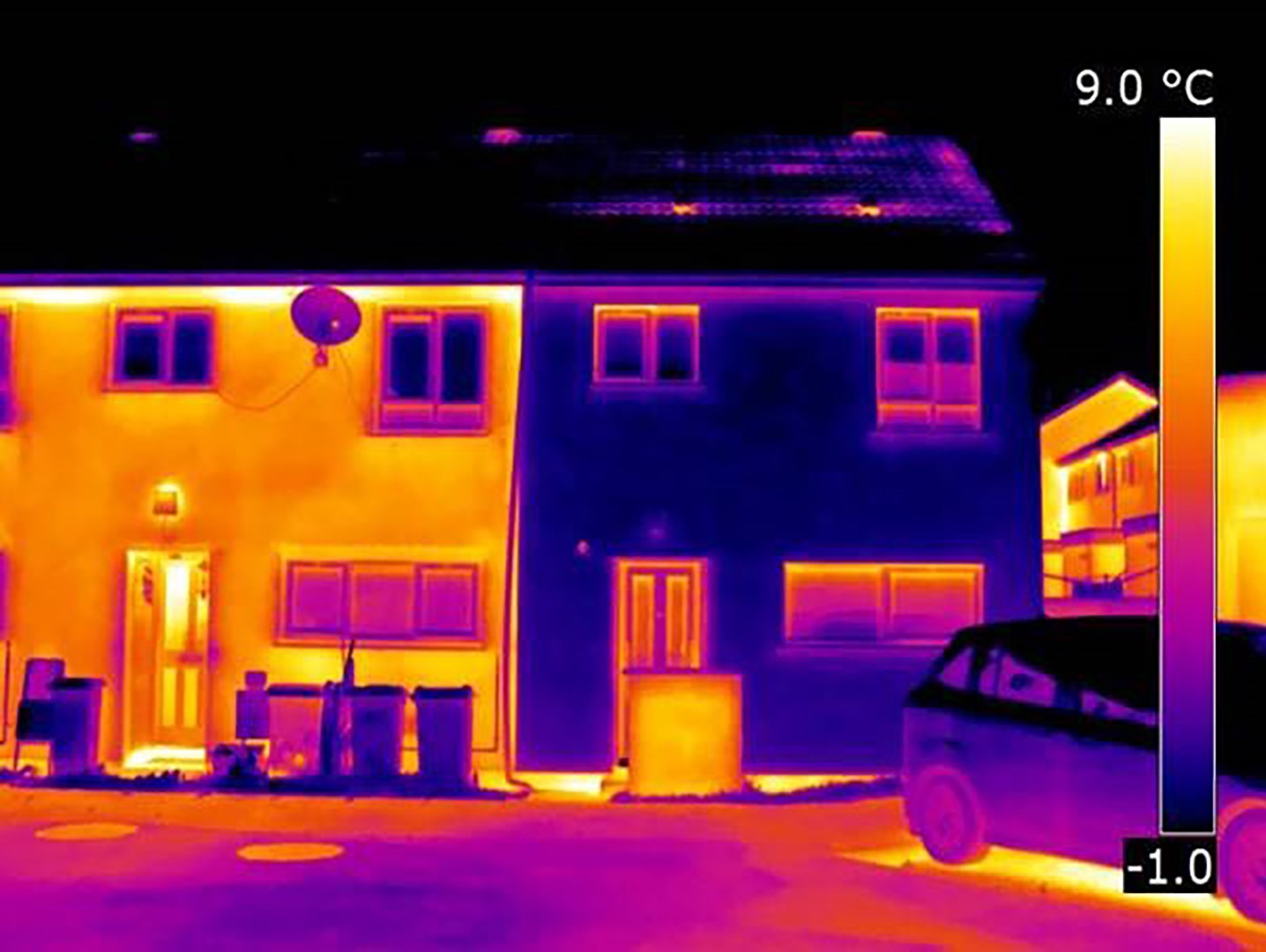
Low energy, high value
Leeds Beckett leads the way with pioneering new toolkit to evaluate success of retrofitting Yorkshire homes
Leeds Beckett University has been leading the way to a low carbon built environment for the last 30 years – through the Leeds Sustainability Institute (LSI).
The LSI’s research expertise around how to build new low energy homes – and how to measure the benefits of retrofitting the nation’s older homes – is making significant impact and has produced insights that have changed the way homes are now built in the UK.
LSI has now teamed up with the UK Green Building Council (UKGBC) to develop a toolkit to evaluate the attempts to improve the energy efficiency of homes. This innovative project is being trialled in West Yorkshire – and will be accessible for all landlords to use.
The new toolkit is currently being used for the first time – in collaboration with Leeds City Council – to investigate the economic, social and environmental benefits that can be achieved through investing in improving the energy efficiency of homes.
Over the next three years, more than 1000 homes will be tested in multiple projects across West Yorkshire. As part of the trial, an LSI PhD student will work directly with Leeds City Council to refine the tool. Their research will establish the processes needed to embed the toolkit into the council’s future standard procurement practices.
The toolkit is part of the World Green Building Council’s BUILDUPON2 project – the world’s largest collaborative project on building renovation. The team hope that it can be developed into a tool which is used all over the world.
Professor David Glew, Director of the Leeds Sustainability Institute (LSI) and Head of Energy Efficiency and Policy at Leeds Beckett, explained: “The problem is that every retrofit project has its own way of reporting successes – which makes it tricky to know what worked and what didn’t. This toolkit should standardise the process, meaning that a project in Leeds can be compared against a project in Wakefield, or London, or even Paris.”

The key to the success of the toolkit will be to make evaluation of retrofits a common practice that organisations can do themselves – rather than landlords and councils having to pay out huge sums for consultants to undertake bespoke research projects each time they take on a new project. This means they can spend more on actually retrofitting homes and less on evaluating them.
This sort of activity is becoming increasingly important as much of the funding provided by the Government to improve the nation’s homes often requires the impact of projects to be reported. The new quality standard mark for domestic retrofits, PAS2035, also requires the performance and risks of homes to be assured.
Professor Glew said: “If we can get the toolkit right, it will tick all the boxes for retrofit evaluations needed by Government funding and under the new standards. This means if landlords and councils adopt the tool, they can simply get on with procuring more retrofits, safe in the knowledge they will be complying with the requirements. This will make things a lot simpler and may go some way to unlocking the potential for more neighbourhood-wide retrofit schemes, which the UK badly needs.”
Cllr Helen Hayden, Leeds City Council’s executive member for Infrastructure and Climate, said: “We’re very excited about trialling this new framework in Leeds. We know that making homes more energy efficient has a wide range of benefits, from reducing carbon, to improving the health, wellbeing and finances of residents. But until now we’ve not had a straightforward way to measure these benefits and see how different projects compare with each other. With the framework we can now do this and we’re really looking forward to the insights it will give us around how our retrofit projects in Leeds are helping communities, residents and the environment.”
The first projects to be included in the trial are already underway, with more in the pipeline for 2022 and 2023. The toolkit aims to be versatile so it can be applied to any type of retrofit – whether that is installing cavity wall insulation, cladding, or even fitting a heat pump into homes or blocks of flats.
Professor Glew added: “This is just one of many projects that the LSI is undertaking on low and zero carbon homes and communities. It is a great example of how research being undertaken at Leeds Beckett University – as an anchor institution in the region – is directly helping local organisations to develop their skills and knowledge to achieve their sustainability goals, and adapt to changing climate policy landscapes.”
To learn more about this and other projects within the LSI at Leeds Beckett, or to find out if you can be involved in this retrofit evaluation toolkit trial, please email
d.w.glew@leedsbeckett.ac.uk


